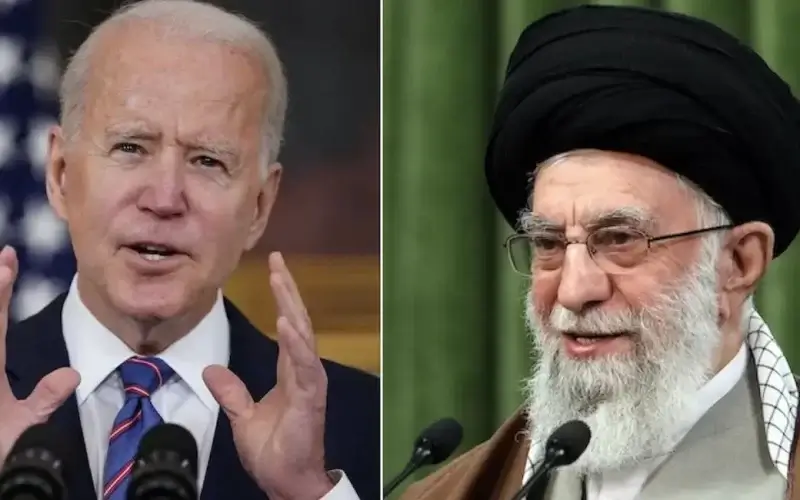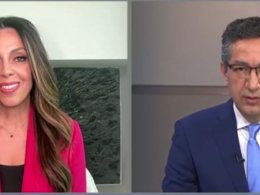With the Biden administration continuing efforts to revive the 2015 Joint Comprehensive Plan of Action (JCPOA) with the Islamic Republic of Iran over its nuclear program, various researchers and organizations have discovered an increasingly growing trend between President Joe Biden and the Islamic Regime's activities. However, the most dangerous steps in Iran expanding its nuclear program occurred after President Biden came into office, according to a new timeline outlined by regional experts.
According to Benham Ben Taleblu, a senior fellow at the Foundation for Defense of Democracy (FDD), a Washington D.C.-based think tank focusing on foreign policy, who put forth the argument on social media together with his colleagues, Iran’s regime has stepped up its policy of incremental nuclear escalation since the election of Joe Biden in 2020.
Iran's nuclear moves over the past year and a half are “irreversible” in terms of the knowledge they provide the regime with respect to operating more advanced centrifuges, enriching uranium to 60 percent purity, and producing uranium metal using highly enriched uranium.
“The regime’s nuclear moves under President Biden render a return to any agreement modeled on the JCPOA as moot,” Taleblu explained.
After former Vice President Biden won the November 2020 election against then-President Donald Trump, Iran’s regime began to enrich uranium in advanced IR-2m centrifuges at its primary enrichment facility in Natanz, with its uranium stockpile growing to 2,400 kilograms. As President Biden and his campaign staff began interviewing and vetting potential government officials, Iran's Islamic Guardian Council approved a new law that called for increasing nuclear advances in December 2020. In January 2021, the Islamic Republic began to enrich uranium to 20 percent purity at its nuclear site in Fordow, creating the necessary capacity for weapons-grade uranium.
"The Islamic Republic exploits the Biden administration's "maximum deference" campaign to undertake its most egregious nuclear advances to date. Biden relaxed sanctions on Tehran, allowing the regime to rebuild its economy and develop alternatives to a deal. Even as Iran approaches the nuclear threshold, the administration has yet to call time on talks and revert to a strategy of maximum economic pressure," stated Andrea Stricker, a nonproliferation and biodefense program deputy director and research fellow at FDD.
When Joe Biden and his officials rescinded former President Trump's snapback of U.N. sanctions, that gave Tehran the green light to stop implementing JCPOA monitoring measures that would allow the International Atomic Energy Agency (IAEA) to observe the regime's nuclear activities. When faced with protest from the IAEA, Iran threatened to destroy the organization's data and made 3.6 grams of uranium metal used for nuclear weapon cores. After the Biden administration announced its intent to revive nuclear talks with the Iranian officials, the Islamic government began to enrich its stockpile of uranium to 60 percent weapons-grade level and produce 200 grams of enriched uranium metal.
Even after the inauguration of radical Islamic hardliner Ebrahim Raisi as Iran's President, President Biden and his team officially announced restarting nuclear talks with the new Raisi government, prompting Iran to enrich 20 percent of its uranium stockpile through a cascade of centrifuges at its Fordow plant. As indirect negotiations between United States and Iranian officials began in Vienna, from December 2021 through January 2022 the Islamic Republic moved its advanced centrifuge production to underground sites at Natanz and Esfahan, away from IAEA inspectors and Israeli attacks.
According to Taleblu it is “unfortunate that the Biden administration has signaled a distaste and disbelief in pressure when it comes to countering Iran's nuclear program from the very beginning. Iranian officials have come to understand this, and accordingly have and continue to capitalize on Washington's hesitancy to embrace pressure in a serious and sustained way. Hence Tehran's ability to constantly dangle the offer of talks while continuing nuclear escalation and advancement.”
In early spring 2022, nuclear talks came to a standstill over the issue of Iran, demanding U.S. officials remove the Islamic Revolutionary Guards Corps (IRGC) from the Foreign Terrorist Organization List (FTO). This move prompted outrage among members of Congress, human rights groups, and experts familiar with the IRGC's terrorist activities who called on the Biden administration to not give in to Iran's demands.
When the administration praised the cooperation between Tehran and the IAEA in March 2022 over the investigation into undeclared nuclear activities, the report from the IAEA revealed troubling conclusions that made many U.S. officials and allies fear the worst. According to the IAEA report, Iran created enough enriched uranium for five nuclear weapons within several months and 60 percent enriched uranium to make one weapon without any further steps for weapons-grade.
Following the report, the IAEA Board of Governors passed a censure resolution against the Islamic Republic, prompting Iranian officials to announce a reduction in IAEA monitoring equipment and install hundreds of centrifuges in underground nuclear sites.
“The Biden administration is angling for a Plan-C on Iran,” Taleblu said. “If Plan-A is diplomacy to get back the JCPOA and Plan-B is pressure akin to what the Trump administration pursued in search of an improved deal, Plan-C is sporadic sanctions enforcement while not announcing that the talks have collapsed. The desire to keep talking even if it yields no progress appears rooted in the political feat by the administration to call its negotiation-centric policy a failure, coupled with the perception that moving to embrace pressure will drive the program further,” he explained.
The Islamic Republic of Iran's expansion of nuclear activities under the Biden presidency isn't the first time under a Democrat president. During the Obama administration, President Barak Obama and his team announced their intentions to negotiate with the Islamic Republic. The president and officials created the 2015 nuclear agreement, hoping that by providing economic sanctions relief on Iran's economy, the regime would become more moderate and agree to use its nuclear program for civilian purposes. The Islamic Republic, however, used concessions and negotiations with the U.S. to prop up hardline radicals in the government, suppress protest movements like the Green Revolution of 2009, and support terrorist proxies throughout the Middle East.
Then, under the Trump administration, President Trump and his team enacted maximum pressure against Iran, canceling the 2015 nuclear agreement, sanctioning its oil economy and Islamic officials, and targeting top Iranian officials like Quds Force Chief Qasem Soleimani. Both administrations' stances have increased the perception that Democrat presidents are soft on the Islamic Republic and Republican presidents are much tougher on Iran policy.
"If Democrats remain wedded to a policy of economic concessions to Tehran for arrangements that do not
permanently resolve the Iran nuclear threat, the Islamic Republic will exploit the opportunity in the form of atomic advances and regional aggression," replied Stricker.
With the upcoming Midterm Elections in November 2023, many experts like Stricker believe that a Republican Congress may "block the President from lifting Iran sanctions and is likely to impose more penalties on Tehran."
"Iranian policy in Congress used to be bipartisan, and strong legislative measures by both parties would have the benefit of ending wild U.S. policy vacillations and better countering the Iran threat," said Stricker.










